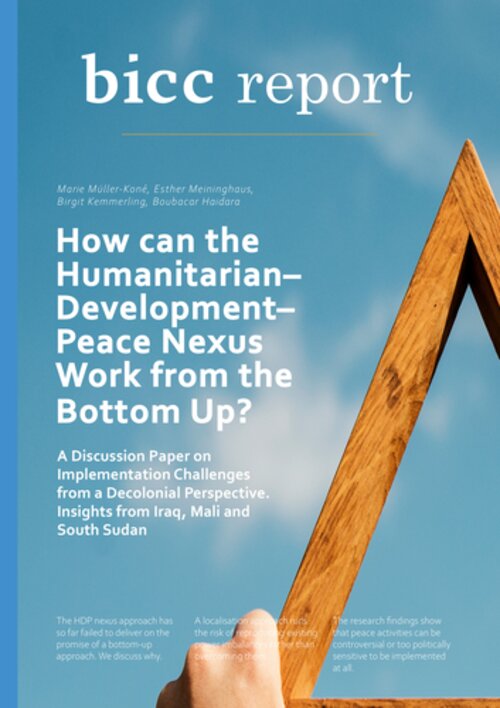Publications
How can the HDP Nexus Work from the Bottom Up?
A Discussion Paper on Implementation Challenges from a Decolonial Perspective. Insights from Iraq, Mali and South Sudan
Release Date
2024-02
Language
- English
Topics
- Building Peace and Social Cohesion
The humanitarian-development-peace (HDP) nexus is designed to render humanitarian responses topopulations in need more sustainable by better linking the three fields of H, D and P activities and addressing the root causes of conflicts. This “New Way of Working” decided at the 2016 World Humanitarian Summit was not only a response to protracted, multiple crises but also a response to a widespread popular discontent withthe existing system of humanitarian aid. Accordingly, calls to decolonise aid have emerged in the humanitarian, development and peacebuilding fields, criticising power imbalances and structural racisms that condition relations between aid actors from the global North and the global South. In this Discussion Paper, we use decolonial critique to gain insights into how the HDP approach works in theory and in practice. Based on a literature review and qualitative empirical research in Iraq, Mali and South Sudan, we argue that the power imbalances addressed by the decolonial movement pose a particular challenge for the HDP nexus, as the HDP approach intervenes in local conflicts and their inherent power dynamics by including peace activities. The guiding question for this Paper is: How can the HDP approach work from the bottom up? To answer this question, we examine the extent to which the HDP nexus has so far been implemented as a bottom-up approach and what new ways forward a decolonial perspective offers.
PDF-Download

Cite as
Document-Type
BICC report
Publisher
bicc
Place
Bonn



